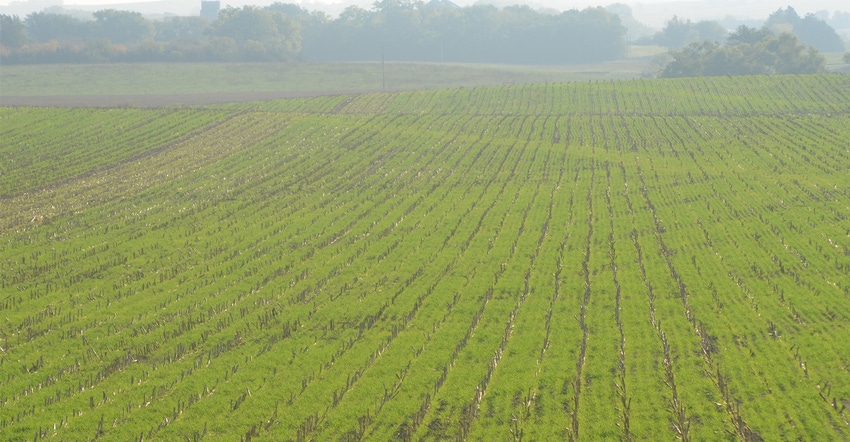November 1, 2021

On June 24, the U.S. Senate adopted S. 1251, the Growing Climate Solutions Act. Co-sponsored by 54 senators, including Nebraska's Sen. Deb Fischer, S. 1251 seeks to make it easier for farmers and ranchers to participate in voluntary carbon credit markets, and to get a fair share of the carbon credit revenue they generate.
If adopted by the U.S. House of Representatives and signed by the president, S. 1251 would go a long way in facilitating effective producer participation in U.S. carbon markets.
Under the act, USDA would prepare a thorough analysis of U.S. carbon markets. The study would, among other things, look at how voluntary carbon markets have operated over the past four years, including supply of and demand for ag carbon credits; project supply and demand for ag carbon credits for the next four years; identify complications associated with measuring and verifying long-term carbon sequestration; and evaluate the potential USDA role for improving carbon reduction measurement technologies.
This study would go a long way in identifying problems producers have participating in existing carbon markets and how to improve those markets to benefit producers.
Advisory committee
USDA would also establish an advisory committee to oversee operation of the USDA program to certify carbon market professionals. A majority of the advisory committee members must be farmers, ranchers or private forest landowners.
Other committee members would represent carbon market professionals and land grant universities. The heavy representation of farmers, ranchers and private forest landowners suggests that the certification program is likely to have a producer-friendly tilt.
One of the main programs under S. 1251 would be the USDA certification of carbon market professionals, including those would who help producers sell carbon credits and those who would measure and verify carbon sequestration or savings. Certification would be voluntary, and producers could work with uncertified carbon market professionals.
The act would recognize a wide range of activities as potentially generating carbon credits, including land or soil carbon sequestration; emissions reductions resulting from fuel choice or reduced fuel or fertilizer use; livestock emissions reductions, including emissions reductions achieved through feed additives or manure management practices; and current Natural Resources Conservation Service land conservation practices. Other practices could be identified by the advisory board to USDA.
Master list
Another USDA action that would greatly enhance carbon market transparency under the act is the creation of a USDA website where certified carbon market professionals would be listed. This electronic list would likely be the first stop for most producers wishing to participate in U.S. carbon markets.
This would make it likely that many, if not most, ag carbon market consultants and companies would become certified if only to be included on the online USDA carbon market list.
The proposal has producer protection requirements that certified carbon market professionals would be required to follow. Certified carbon market professionals would be required to act in good faith, and to provide realistic estimates of costs and revenues relating to carbon-saving activities and verification.
Certified carbon market professionals would, in addition, be required to ensure that farmers and ranchers receive a fair distribution of revenues from the sale of ag carbon credits.
While S. 1251 has passed the Senate, the House of Representatives has yet to act on it. Politically, the bill has an uphill journey in the House because many Democrats are convinced that the whole concept of carbon credits detracts from actually reducing carbon emissions in the energy, transportation and industrial sectors.
Under this view, if carbon credits allow emitters of greenhouse gas pollution to continue those emissions, that dynamic postpones moving to a cleaner U.S. energy system. On the other hand, many environmental and conservation groups support S. 1251, so all is not lost. But likely opposition from some Democrats could slow its enactment.
S. 1251 does not authorize USDA or the federal government to regulate voluntary carbon markets, does not restrict who farmers or ranchers may work with when participating in carbon markets and does not require carbon markets to become more farmer-friendly.
At a minimum, the act will provide much greater transparency for producers interested in participating in carbon markets. Through the regulation of certified carbon market professionals and establishing carbon-saving protocols, the act additionally seeks to make the U.S. carbon markets fairer to producers and easier for producers to understand.
Aiken is a Nebraska Extension agricultural and water law specialist.
You May Also Like




